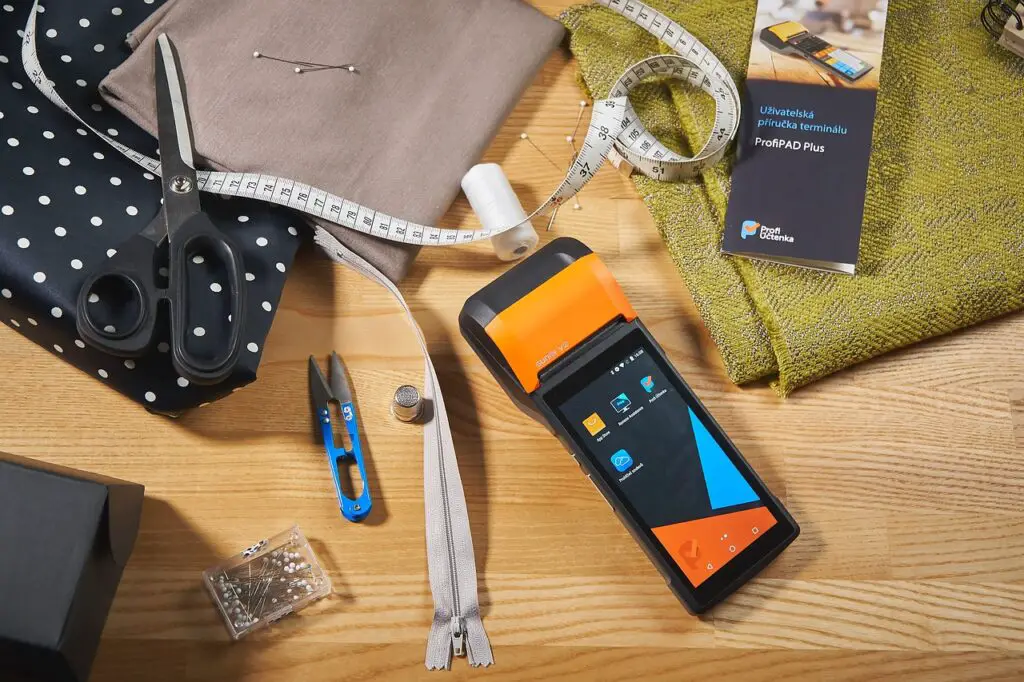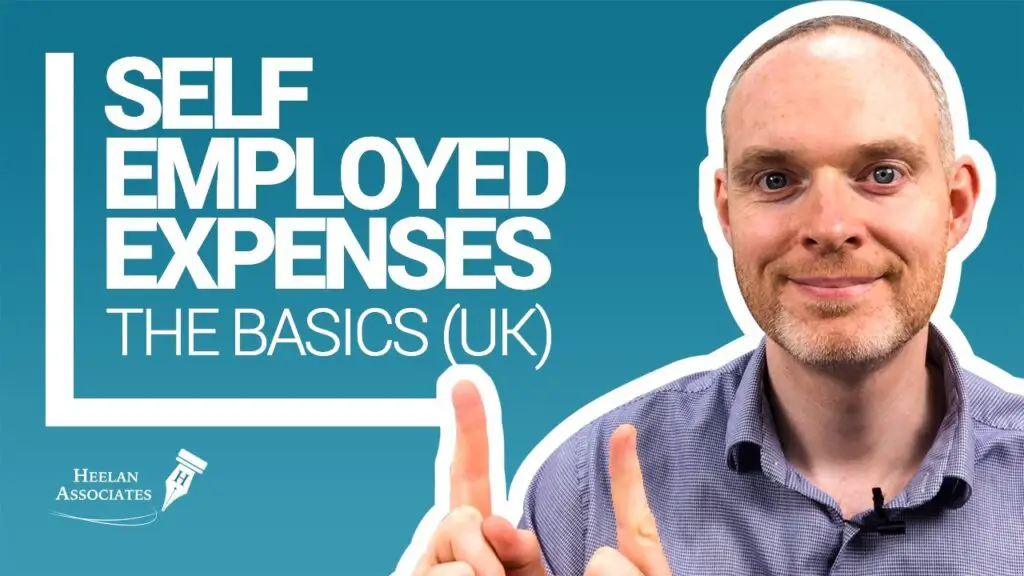
In the world of running your own business as a sole trader, it’s important to understand the ins and outs of allowable expenses. As a friendly guide, this article will break down what you need to know about keeping track of the expenses that can be claimed as deductions for tax purposes. From office supplies to travel expenses, we’ll explore the essentials of navigating the complex world of allowable expenses as a sole trader. So grab a cup of coffee, sit back, and let’s dive into this helpful resource for all sole traders out there.
Definition of Sole Trader Allowable Expenses
As a sole trader, you are responsible for managing your own business finances. One crucial aspect of this is identifying and understanding allowable expenses. Allowable expenses are the costs that you can deduct from your business income to calculate your taxable profit. By deducting these expenses, you can reduce your overall tax liability and keep more money in your pocket. In this comprehensive guide, we will explore various categories of sole trader allowable expenses and provide explanations and examples for each category.
General Principles
When it comes to allowable expenses, there are a few general principles to keep in mind. Understanding these principles will help you determine whether an expense qualifies for deduction or not.
Deductible vs. Non-deductible Expenses
Sole trader allowable expenses are those that are necessary for running your business and directly relate to your business activities. On the other hand, non-deductible expenses are personal expenses that do not have a direct connection to your business. The key principle here is that only expenses incurred for business purposes can be deducted.
Requirement of Being Wholly and Exclusively for Business Purposes
For a Sole trader expenses to become allowable, it must be incurred wholly and exclusively for business purposes. This means that even if an expense partially benefits your personal life, as long as the primary purpose is for your business, it can be considered deductible. However, if an expense has both personal and business elements and the personal element is significant, it may not be allowable.
Now that we understand the general principles, let’s dive into the specific categories of sole trader allowable expenses and explore each in detail.
Office and Rent Expenses
As a sole trader, it is essential to have a suitable place to conduct your business operations. Whether you work from a dedicated office space or a portion of your home, there are various office and rent expenses that can be deducted.
Rent and Utility Bills
If you rent a commercial property for your business, the rent you pay is deductible. Additionally, utility bills such as electricity, water, and heating that directly relate to your business premises can also be claimed as expenses.
Insurance
Insurance is crucial for protecting your business from unforeseen events. Whether it’s public liability insurance, professional indemnity insurance, or contents insurance for your office space, the premiums paid can be deducted as a Sole trader allowable expenses. Just make sure that the insurance policies are solely for your business and not for personal use.
Travel Expenses
As a sole trader, you may need to travel for business purposes. Whether it’s visiting clients, attending meetings, or going to trade shows, there are various travel expenses that can be deducted as sole trader allowable expenses.
Business Mileage
If you use your own vehicle for business travel, you can claim a mileage rate for each business mile driven. The current mileage rate for cars and vans is 45 pence per mile for the first 10,000 miles in a tax year, and 25 pence per mile for any additional miles.
Public Transport
If you use public transport, such as trains or buses, for business purposes, the ticket costs can be claimed as allowable expenses. Just make sure to keep records of the tickets and receipts for accurate record-keeping.
Parking and Tolls
Parking fees and toll charges incurred during business travel can also be claimed as deductible expenses. Whether it’s parking at client premises or paying tolls on the way to a meeting, these costs can be included in your allowable expenses.
Equipment and Technology Expenses
To effectively run your business, you may need to invest in equipment and technology. These expenses can be deductible and reduce your taxable profit.
Computers and Laptops
If you purchase a computer or laptop for your business, the cost can be claimed as an allowable expense. Additionally, if you lease the equipment, the leasing costs can also be deducted.
Software
Software is an essential tool for many businesses. Whether it’s accounting software, design programs, or productivity tools, the cost of purchasing and licensing software can be claimed as an allowable expense.
Office Supplies
From pens and paper to printer ink and stationery, the cost of office supplies can be deducted. Be sure to keep track of these expenses and retain receipts for accurate record-keeping.
Telephone and Internet Bills
In today’s interconnected world, having reliable telephone and internet services is crucial for business operations. The costs of your telephone and internet bills can be claimed as allowable expenses, as long as they are solely for business use.
Repairs and Maintenance
If you need to repair or maintain any of your business equipment, such as computers, printers, or office furniture, the associated costs can be deducted as allowable expenses. It’s important to differentiate between repairs and improvements, as improvements may not be deductible.
Marketing and Advertising Expenses
To promote your business and attract customers, you may incur various marketing and advertising expenses. Fortunately, these costs can be deducted as sole trader allowable expenses.
Printing and Stationery
Whether it’s business cards, brochures, or flyers, the cost of printing promotional materials can be claimed as deductible expenses. Additionally, any stationery items used for marketing purposes, such as branded envelopes or letterheads, can also be included.
Advertising Costs
From online ads to newspaper ads, the money you spend on advertising your business can be claimed as an allowable expense. This includes costs for creating and distributing advertisements.
Website Development and Maintenance
In today’s digital age, having a professional website is essential for businesses. The expenses incurred for website development and maintenance, including design, hosting, and domain registration fees, can be deducted as allowable expenses.
Professional Photography
If you hire a professional photographer to capture images for your marketing materials or website, the cost of the photography service can be claimed as an allowable expense. Just make sure to keep receipts and records of the photoshoot.
Professional Services Expenses
As a sole trader, you may require the assistance of professional services to keep your business running smoothly. Fortunately, the fees paid to these professionals can be included as sole trader allowable expenses.
Accounting and Bookkeeping Fees
If you hire an accountant or bookkeeper to assist with managing your financial records and preparing your accounts, the fees you pay them can be claimed as deductible expenses. This also applies to software or online platforms used for accounting purposes.
Legal and Consultancy Fees
Whether you seek legal advice or hire a consultant to improve your business operations, the associated fees can be included as allowable expenses. Just make sure that these services are entirely for business purposes.
Professional Memberships and Subscriptions
If you belong to professional associations or subscribe to trade magazines or journals related to your industry, the membership fees or subscription costs can be claimed as allowable expenses. These resources can provide valuable insights and knowledge to help you grow your business.
Training and Development
Investing in your professional development is crucial for staying ahead in your industry. The costs of attending training courses, workshops, conferences, or seminars directly related to your business can be deducted as allowable expenses.
Employee Expenses
If you have employees working for your business, their wages and associated costs can be claimed as allowable expenses.
Wages and Salaries
The wages and salaries you pay to your employees, including yourself if you operate as an employee of your own business, are deductible expenses. It’s important to keep accurate records of payments and comply with employment laws and regulations.
Pensions and Benefits
If you provide pensions or benefits to your employees, such as contributions to a workplace pension scheme or healthcare plans, the associated costs can be claimed as allowable expenses. Be sure to consult with an accountant or financial advisor to ensure compliance with relevant regulations.
Business Premises Expenses
If you operate your business from a physical location, such as a shop or office, there are various premises-related expenses that can be included as allowable expenses.
Business Rates
Business rates are a tax imposed on non-residential properties. If you pay business rates for your premises, the amount can be deducted as an allowable expense.
Repairs and Maintenance
Maintaining your business premises is essential for providing a safe and functional environment. The costs of repairs, such as fixing plumbing or electrical issues, and general maintenance can be claimed as allowable expenses.
Cleaning and Janitorial Services
If you hire cleaning services or employ janitorial staff to keep your business premises clean and presentable, the costs can be included as allowable expenses. Whether it’s daily cleaning or periodic deep cleaning, these expenses can be deducted.
Non-allowable Expenses
While there are many expenses that can be claimed as sole trader allowable expenses, there are also certain expenses that cannot be deducted from your business income. It’s important to be aware of these non-allowable expenses to avoid any issues with the tax authorities.
Non-business Expenses
Expenses that are not incurred wholly and exclusively for business purposes are not deductible. This includes personal expenses such as private healthcare, clothing, and entertainment expenses.
Capital Expenditure
Capital expenditure refers to the cost of acquiring or improving long-term assets, such as buildings or machinery, that provide a lasting benefit to your business. These costs are not immediately deductible but may be eligible for capital allowances.
Fines and Penalties
Any fines or penalties imposed on your business, such as parking fines or late payment penalties, cannot be claimed as allowable expenses. It’s important to avoid any unnecessary fines or penalties to minimize your business expenses.
In conclusion, understanding sole trader allowable expenses is crucial for managing your business finances effectively. By identifying and deducting these expenses, you can lower your tax liability and keep more of your hard-earned money. From office and rent expenses to travel, equipment, marketing, professional services, employee expenses, and business premises, there are various categories of allowable expenses to consider. Just remember to keep accurate records and consult with an accountant or tax advisor to ensure compliance with relevant regulations. With the knowledge gained from this guide, you can confidently navigate the world of sole trader allowable expenses and optimize your business finances.

